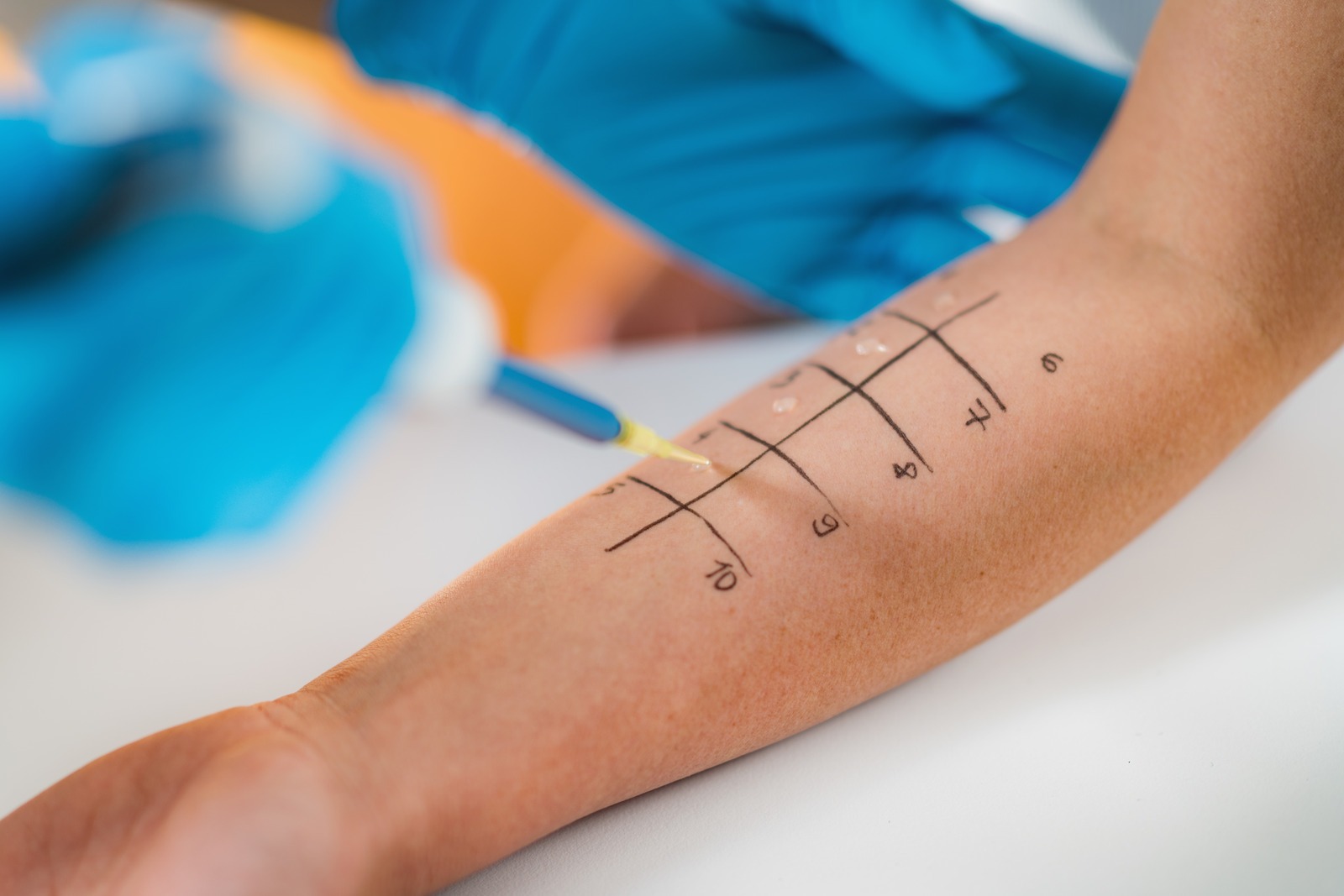Alcohol Intolerance: Signs, Symptoms, Risks, and Management

Alcohol intolerance is a condition in which your body has an immediate, uncomfortable reaction after drinking alcohol. It’s a genetic condition that affects the body’s ability to break down alcohol efficiently. The only treatment is to avoid alcohol completely.
Learn more about alcohol intolerance, its signs, symptoms, and risks, and what to do if you experience this adverse reaction.
What Is Alcohol Intolerance?
Alcohol intolerance is an inherited metabolic disorder. These disorders affect your metabolism or how your body converts energy.
Our bodies have enzymes, which are proteins that speed up chemical reactions, such as digesting food. Alcohol intolerance is a problem with the specific enzyme that helps the body metabolize alcohol, alcohol dehydrogenase (ADH), which processes ethanol.[1]
The liver processes ethanol into acetaldehyde, a toxic metabolite that can cause cellular damage if not further metabolized efficiently. Another enzyme, aldehyde dehydrogenase 2 (ALDH2), converts acetaldehyde to acetic acid (vinegar), which is nontoxic in the body.
In individuals with alcohol intolerance, a genetic mutation can result in a less active or inactive form of the ALDH2 enzyme, impairing the body’s ability to metabolize acetaldehyde. The body can’t convert acetaldehyde to acetic acid, so acetaldehyde begins to build up in the tissue and causes symptoms.
Even small amounts of alcohol can cause unpleasant symptoms, such as flushing and warmth.
Signs and Symptoms of Alcohol Intolerance
One of the hallmark signs of alcohol intolerance is alcohol flushing syndrome, which is when the face, neck, and chest become warm and red after drinking alcohol.
There are other signs and symptoms of alcohol intolerance, including:[2]
- Nausea and vomiting
- Rapid heartbeat
- Heart palpitations
- Low blood pressure
- Fatigue
- Pounding headache
- Stuffy nose
- Diarrhea
- Worsening asthma symptoms
- Hangover-like symptoms
Risks of Alcohol Intolerance
Most people choose to stop drinking alcohol to avoid the unpleasant symptoms of alcohol intolerance. However, if you continue to drink, you may increase your risk for cancer of the mouth and throat, liver disease, and late-onset Alzheimer’s disease.[3]
Is Alcohol Intolerance an Alcohol Allergy?
Alcohol intolerance is often confused with an alcohol allergy, but they’re not the same thing.
Alcohol intolerance is primarily a genetic condition affecting the body’s metabolic processes, particularly the enzymes responsible for alcohol metabolism, rather than primarily affecting the digestive system. Alcohol allergy involves an immune system reaction, where the body’s defense mechanisms mistakenly identify components within alcoholic beverages or ethanol as harmful, leading to an allergic response. [4]
The symptoms of alcohol intolerance and alcohol allergy are slightly different as well. Both intolerance and allergy can cause nausea, but the key symptom of alcohol intolerance is flushing on the face, neck, and chest.
Allergies include rashes, itchiness, swelling, and stomach cramps. These symptoms are often more painful than alcohol intolerance. In some cases, an alcohol allergy can be life-threatening without treatment.
How Is Alcohol Allergy Diagnosed?

If you suspect you have alcohol allergy, it’s important to seek care from your doctor. They may ask about your symptoms and reactions to alcohol and request tests to confirm your diagnosis.
Two tests may be used for alcohol allergy:
- Skin test: The skin prick test is utilized to identify potential allergies to components found in alcoholic beverages, like grains. It involves introducing a small amount of the allergen to the skin and observing for any allergic reaction. The test is done by pricking your skin with a small amount of an allergen. They may also perform an ethanol patch test, which involves putting a drop of ethanol on your skin and checking for a reaction.
- Blood test: A blood test assesses the body’s immune response to potential allergens by measuring levels of immunoglobulin E (IgE) antibodies, indicating an allergic reaction to specific substances, which may include ingredients in alcoholic beverages. The sample is then sent to a laboratory to check for reactions.
How To Diagnose Alcohol Intolerance
The symptoms of alcohol intolerance may include flushing, nasal congestion, gastrointestinal discomfort, or rapid heartbeat after alcohol consumption. Someone experiencing these symptoms should undergo a thorough medical evaluation. The diagnosis primarily relies on the patient’s history and a physical examination.
Specific tests, like an ethanol patch test or blood tests to measure acetaldehyde levels, may be conducted to rule out other conditions. Genetic testing could be considered to identify mutations in the ALDH2 gene, a common cause of alcohol intolerance in East Asians. It’s also important to differentiate alcohol intolerance from allergic reactions and other conditions that may mimic its symptoms.
Treatment for Alcohol Intolerance
Alcohol intolerance can happen the first time you drink alcohol, or it may come on suddenly later in life. often, people who experience alcohol intolerance will drink less or stop drinking entirely because of how uncomfortable the symptoms can be.
The primary management for alcohol intolerance involves abstaining from alcohol consumption, including avoiding products that contain trace amounts of alcohol, such as certain mouthwashes and cough syrups.
You may need to avoid other things if you experience alcohol intolerance, such as tobacco use. Smoking can increase the levels of acetaldehyde, which can increase your cancer risk.[5] Certain medications can worsen the symptoms of alcohol intolerance, so be sure to discuss this with your doctor.
While some individuals may temporarily use antacid or antihistamine medications to alleviate the symptoms of alcohol intolerance, these medications only mask the symptoms and do not address the underlying intolerance. You could end up drinking even more alcohol because you don’t feel the negative effects, leading to worse symptoms.
Alcohol Intolerance with Alcohol Addiction
Alcohol addiction is characterized by the development of tolerance, where increased amounts of alcohol are needed to achieve the same effects, and dependence, where the body has physiologically adjusted to the presence of alcohol, leading to withdrawal symptoms upon cessation. If you quit, you can experience withdrawal symptoms that can have potentially life-threatening complications.
Though it may be surprising, alcohol intolerance can occur in people who have alcohol addiction. It can be challenging to “treat” alcohol intolerance since that usually means avoiding alcohol. If you’re dependent on alcohol, quitting abruptly will relieve the symptoms of intolerance but can bring on severe withdrawal symptoms.
If you or a loved one is struggling with alcohol addiction and develops sudden alcohol intolerance, it’s crucial to seek out a detox center for treatment. Medical detox provides medical care and supervision to manage the symptoms of alcohol withdrawal and minimize the risk of potentially fatal complications.
Once detox is complete, you can undergo formal addiction treatment to address the underlying causes of addiction, which may include family therapy, group therapy, or behavioral therapies. There’s no cure for alcohol intolerance, so you will need addiction treatment to cope with a life free of alcohol.
Living with Alcohol Intolerance
If you develop alcohol intolerance, you will need to avoid alcohol as much as possible to limit your symptoms. Non-alcoholic beverages can be a suitable alternative to alcohol and allow you to engage in social activities without worrying about symptoms and risks.
Ready to get help for you or a loved one? Contact us
To ensure accuracy and quality, every contributor to the Alpas Wellness resource library undergoes a thorough evaluation of their experience, credentials, and achievements prior to publication.
Frequently Asked Questions About Alcohol Intolerance
Is There a Cure for Alcohol Intolerance?
Alcohol intolerance is an inherited condition with no treatment or cure. The only way to address the symptoms is by avoiding alcohol.
Can I Prevent Alcohol Intolerance?
Given that genetic factors largely influence alcohol intolerance, there are no known measures to prevent its onset other than alcohol avoidance.
How Common Is Alcohol Intolerance?
The prevalence of alcohol intolerance isn’t well known. According to one study of 948 individuals, 7.2% of participants reported wine intolerance.[6] This is more common among women than men at an 8.9% to 5.2% ratio, but it’s unclear if that ratio reflects the general population.
Is Alcohol Intolerance the Same as Being Intoxicated?
Though flushing and warmth can occur when you’re intoxicated, alcohol intolerance is not the same as being drunk. The condition isn’t a response to the amount of alcohol you drank or your blood alcohol level.
Mayo Foundation for Medical Education and Research. (n.d.). Alcohol intolerance. Mayo Clinic. Retrieved from https://www.mayoclinic.org/diseases-conditions/alcohol-intolerance/symptoms-causes/syc-20369211
Mayo Foundation for Medical Education and Research. (n.d.). Alcohol intolerance. Mayo Clinic. Retrieved from https://www.mayoclinic.org/diseases-conditions/alcohol-intolerance/symptoms-causes/syc-20369211
Professional, C. C. M. (n.d.). Alcohol intolerance. Cleveland Clinic. Retrieved from https://my.clevelandclinic.org/health/diseases/17659-alcohol-intolerance on 2024, July 3.
Administrator. (2021, April 6). Alcohol allergy. Alcohol allergy – Australasian Society of Clinical Immunology and Allergy (ASCIA). Retrieved from https://www.allergy.org.au/patients/other-allergy/alcohol-allergy#
M;, S. (n.d.). Interrelationship between alcohol, smoking, acetaldehyde and cancer. Novartis Foundation symposium. Retrieved from https://pubmed.ncbi.nlm.nih.gov/17590988/
H;, W. P. M. J. (n.d.). Prevalence of wine intolerance: Results of a survey from Mainz, Germany. Deutsches Arzteblatt international. Retrieved from https://pubmed.ncbi.nlm.nih.gov/22787508/